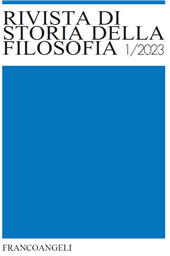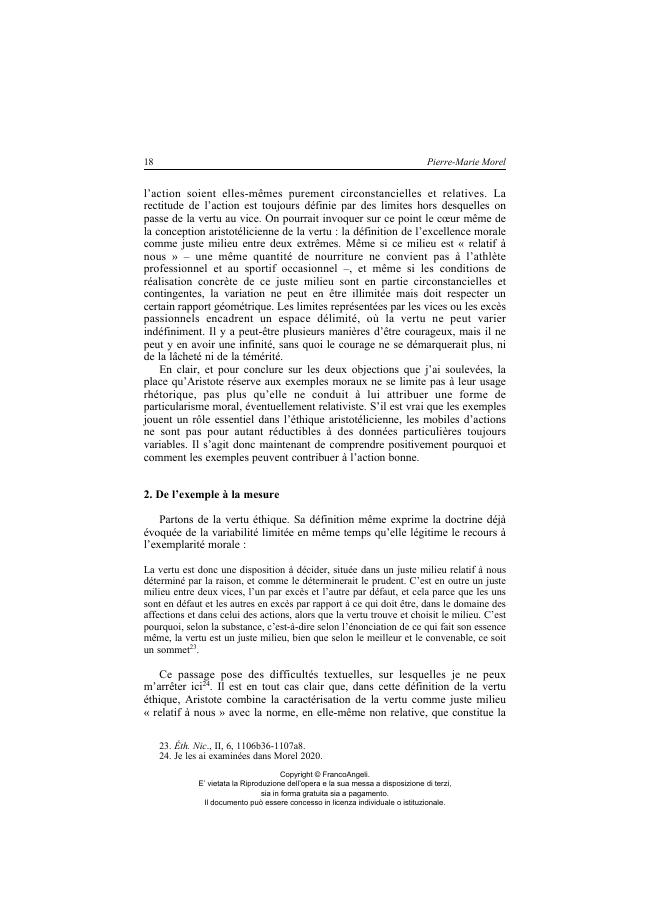La mesure et l'exemple : l'exemplarité morale dans l'éthique d'Aristote
11-24 p.
In this article, it is argued that: 1) Aristotle's use of moral exemplars is not a mere practical empiricism;; 2) moral exemplarity counts as a legitimate tool for practical knowledge. At first glance, the moral exemplar looks like a mere empirical substitute for a scientific knowledge of the Good, which, strictly speaking, would be impossible. In that respect, the exemplar looks like a particular case, by contrast with real practical norms. Consequently, Aristotle's exemplarism seems, at best, to lead to a sort of relativistic particularism. However, Aristotle's use of examples and exemplars have a significant part in moral conduct, where the virtuous person stands for the human standard of good action.
Moreover, Aristotle puts the emphasis on the notion of "measure" (metron). By doing so, he constructs a consistent conception of moral exemplarity. The wise person is the âÂmeasure' of moral conduct, and this means that he is neither an absolute model to be imitated, nor a mere particular case to be consider. [Publisher's text].
-
Articoli dello stesso fascicolo (disponibili singolarmente)
-
Informazioni
Codice DOI: 10.3280/SF2023-001002
ISSN: 1972-5558
PAROLE CHIAVE
- Aristotle's Ethics, Measure, Relativism, Particularism, Practical wisdom, Exemplar



